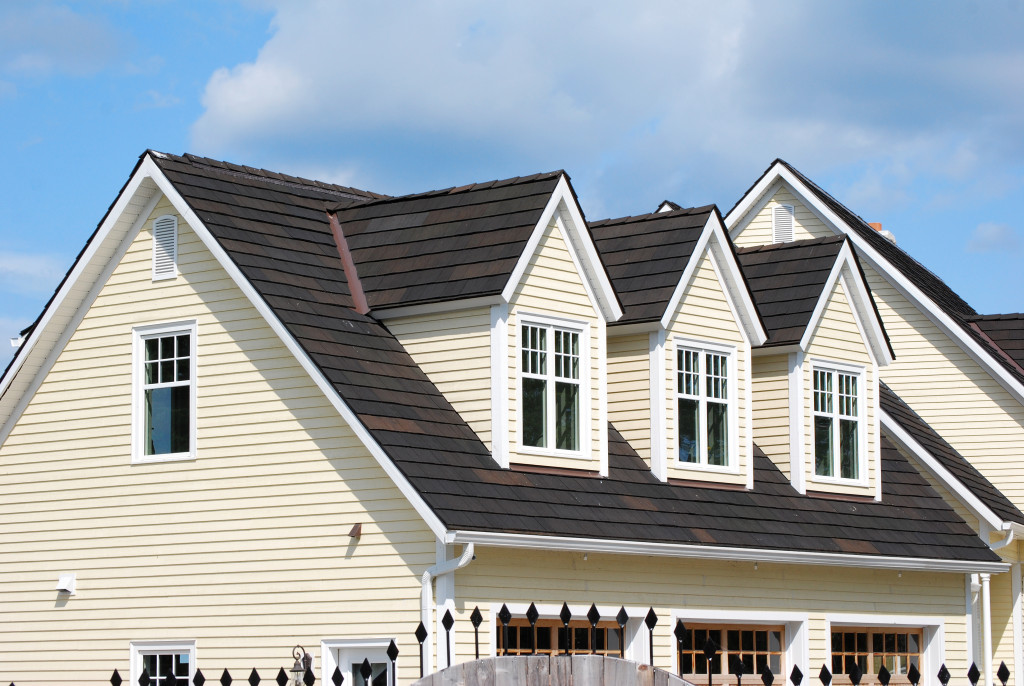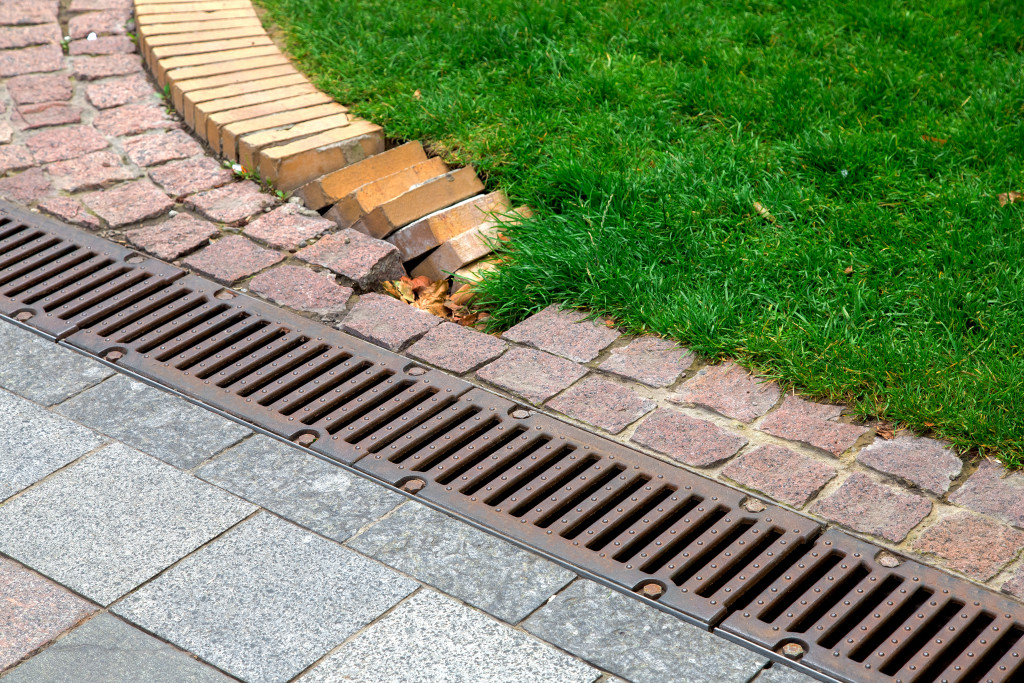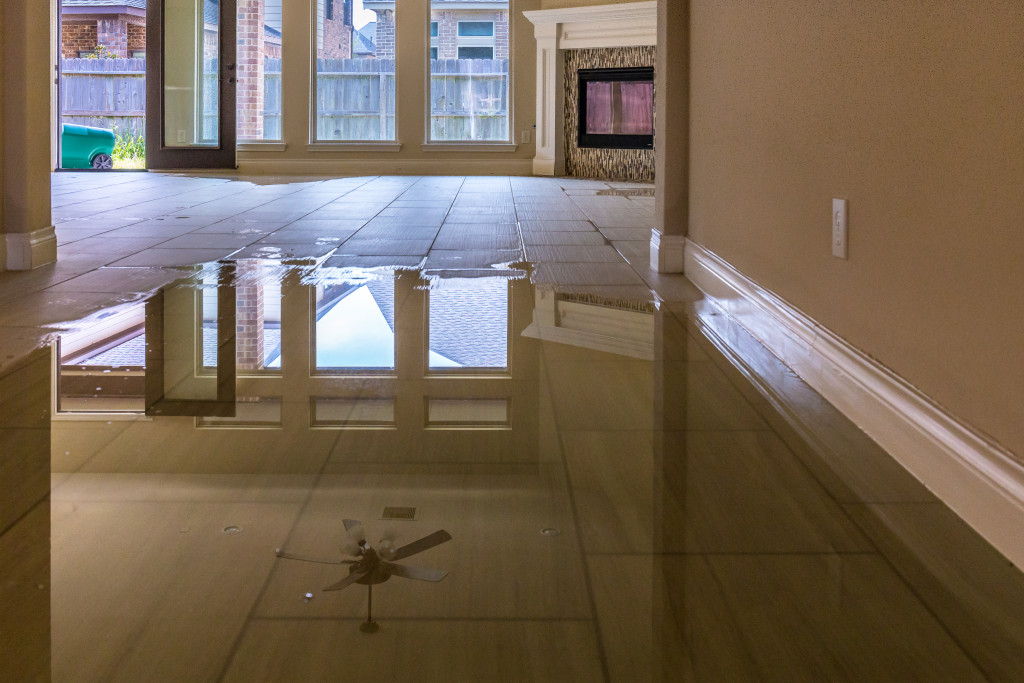- Preparing your home for natural disasters should be a top priority.
- Regularly inspect and maintain your roof to ensure its resilience against harsh weather conditions.
- Properly seal doors and windows to prevent water infiltration and reinforce them against strong winds.
- Maintain your home’s foundation by keeping the surrounding soil moist and installing a good drainage system.
- Invest in a reliable drainage system and plan for water damage with the help of professional services.
Preparation is pivotal in minimizing the impact of natural disasters on your home. It not only safeguards your property but also ensures the safety of your loved ones. Below are five essential home maintenance tips to fortify your home against the unpredictable forces of nature.
1. Reinforce Your Roofing System
Your roof is not just a shelter; it’s your first defense against the harshest weather conditions. It’s crucial to take proactive measures to ensure its resilience and durability. Schedule regular inspections to identify any loose or damaged shingles, leaks, or signs of wear and tear. You can promptly replace worn-out roofing materials to prevent water infiltration and potential damage during storms.
Additionally, consider investing in impact-resistant shingles to enhance the protective capabilities of your roof. These specially designed shingles offer added resilience against hail and strong winds, providing peace of mind during extreme weather events. Taking these steps will help you safeguard your home and prolong the lifespan of your roof.
2. Seal Doors and Windows Properly

Doors and windows are vulnerable points during natural disasters. To enhance their resilience, ensure that they are adequately sealed. This action prevents water from entering your home during heavy rains and reinforces them against strong winds.
Upgrading to storm doors and windows is also a wise decision. These specially designed structures can withstand severe weather, providing extra protection for your home.
3. Maintain Your Home’s Foundation
A strong and sturdy foundation is vital for safeguarding your home from the wrath of natural disasters. By providing a solid base, the foundation acts as a shield, protecting your beloved abode from the forces of nature. Regularly inspecting your foundation for any cracks or signs of stress is of utmost importance, as these could compromise the structural integrity of your home, leaving it vulnerable to unpredictable elements.
Here are tips for maintaining your home’s foundation:
Keep the Surrounding Soil Moist
The soil surrounding your foundation should always maintain a consistent level of moisture. Too much water can cause the soil to expand, exerting pressure on the foundation, while too little can lead to soil shrinkage, creating a gap between the ground and the foundation and resulting in instability.
Install a Good Drainage System
Water accumulation around your home’s foundation can cause serious damage. A well-designed drainage system helps direct any excess water away from your foundation, preventing harmful pressure build-up and soil erosion.
Monitor and Repair Cracks
Regularly inspect your foundation for cracks or fractures, as these can be signs of potential structural damage. Early detection and repair of these defects can prevent them from exacerbating, thus saving you from potentially costly repairs in the future.
Plant Trees at a Safe Distance
Trees planted too close to your home can cause issues as their roots push against the foundation. Ensure to plant trees at a safe distance and consider removing existing ones too close to your house to protect your foundation from unnecessary pressure.
4. Invest in a Reliable Drainage System

A reliable and efficient drainage system is paramount to effectively divert water from your home, particularly during heavy rainfall or potential flooding. It is crucial to regularly inspect and maintain your gutters, ensuring they are free from any debris or blockages that could hinder the proper flow of water. Additionally, it is essential to ensure that your downspouts effectively direct water away from your home’s foundation, preventing any potential water damage.
For those residing in areas prone to flooding, it is highly recommended to consider installing additional water management systems such as French drains or sump pumps. French drains are designed to channel excess water away from your property, while sump pumps help collect and remove water that might accumulate in basements or crawl spaces. By implementing these systems, you can further safeguard your home from water accumulation, minimizing the risk of any potential foundation damage or structural issues.
5. Plan for Water Damage
Sometimes, despite all preventative measures, water may find its way into your home during a disaster. In such cases, having a plan for immediate action is crucial. Engage professional water removal services that can act promptly to mitigate the damage.
Contracting with a reputable company ensures you get priority service when disaster strikes. These experts will extract water efficiently, initiate the drying process, and restore your home to its pre-damaged state, thereby protecting your investment.
In Summary
Preparing your home for natural disasters is a continuous process that requires attention and care. By reinforcing your roofing, sealing openings, maintaining your foundation, ensuring proper drainage, and planning for water removal services, you create a stronghold that stands a better chance against the formidable forces of nature. Stay proactive, and consider professional advice and services to enhance your home’s defenses and ensure safety during tumultuous times.
